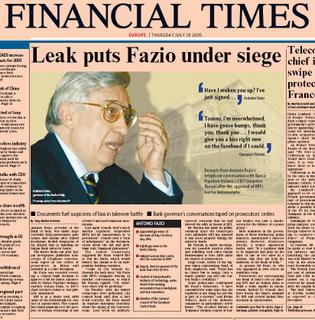In any case, the hostile narrative of the Crusades bequeathed by historians from Gibbon to Runciman took deep root in the Western imagination, and has found a powerful echo in popular culture. Of course, the adventures of the crusaders themselves have been the stuff of literature from the troubador Blondel's search for the imprisoned Richard the Lionheart to Torquato Tasso's verse epic Gerusalemme Liberata to the romances of Walter Scott and beyond. Today, however, the historical reality of the Crusades has been appropriated by those whose quite specific aim is to discredit the war against Islamist terrorism.
[...]
These and other considerations must go into the writing of fair-minded histories of the Crusades, giving due weight to the spiritual energies that made them possible, to the brutality they visited upon Jews and others, and to their consequences, beneficial and otherwise. But it is no less essential to place them within their larger historical context. In that larger perspective, they take their place as a short-lived counteroffensive against another, much lengthier, and much more relentless holy war — namely, the Muslim jihad against Christendom.
For the fact is that whereas the Crusades were a temporary phenomenon that flourished for some two centuries and had quite limited purposes, jihad is and has been a permanent and ubiquitous fact of Islamic life.
Jihad evolved into a doctrine of Islamic jurisprudence as a byproduct of the great Arab expansion after the death of the Prophet Muhammad, thus predating the First Crusade by more than four centuries. Muslim scholars were well aware of the uniqueness of this institution. Ibn Khaldun, the greatest of all Islamic historians and a key witness from the period just after the Crusades, compares Islam with Christianity and Judaism in this respect:
"In the Muslim community, the holy war is a religious duty, because of the universalism of the Muslim mission and the obligation to convert everybody to Islam either by persuasion or force… . The other religious groups did not have a universal mission, and the holy war was not a religious duty to them, save only for purposes of defense."
[...]
So the Crusades took place against a background of Muslim conquest, of which the Dome of the Rock and the al-Aqsa Mosque in Jerusalem were deliberately triumphal symbols. Compared with the three phases of jihad against Christendom — Arab, Tartar, and Turkish — lasting over a millennium and stretching across three continents, the seven Frankish expeditions to Palestine can be seen in proportion: a "limited and belated response," as Bernard Lewis puts it, a brief if important interlude in the long history of jihad. In this context, it is not so surprising that at the time, as Lewis reminds us, the Muslims "knew little and cared less" about the crusaders. The turning point in relations between Islam and the West came only much later, at the end of the 17th century, when the long Turkish retreat, beginning with the siege of Vienna, finally forced the Ottoman Sultans to come to terms.
[...]
An obscure branch of medieval history may not sound like promising or even especially important territory for public debate. But unless and until the Crusades are reclaimed by scholarship, and interpreted objectively for popular consumption, there is a real danger that the al-Qaeda school of historiography (as we may call it) will triumph. In the reflexively anti-Israel and anti-American attitudes of many Europeans, in mindless celebrations of a movie like Kingdom of Heaven — "courageously relevant," says the Seattle Intelligencer; "full of astonishments, not the least of which are its ideas," chimes in the Washington Post — it already has.
The Crusades are an organic part of Western history. They are also a casus belli, and will remain so for as long as it suits the Islamists. On the cultural front of that war, one side has gone disastrously far in the direction of unilateral disarmament.




